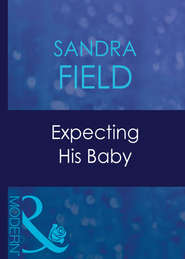По всем вопросам обращайтесь на: info@litportal.ru
(©) 2003-2025.
✖
The Millionaire's Pregnant Wife
Автор
Год написания книги
2019
Настройки чтения
Размер шрифта
Высота строк
Поля
Remembering how she’d clambered up the creeper filled him with amusement at her skill, and sheer terror because she could have fallen.
First things first. Once the weight of these damned boxes was off his shoulders, he’d be able to concentrate.
By noon, he’d found school reports where Rosemary had been getting into far more serious trouble than talking in class, and Kelsey had turned up a newspaper report about Rosemary’s second appearance in juvenile court, this time for drinking and driving. Training his face to immobility, he put them to one side. At four-thirty, while Kelsey was in the kitchen brewing another pot of coffee, he came across three letters.
The first was from Rosemary to Sylvia, demanding money and making it clear Rosemary had been banished in disgrace from Griffin’s Keep in her third month of pregnancy, with less than a hundred dollars to her name. Sylvia’s reply, dated several weeks later, was cold and to the point: she would pay for admission to an addictions clinic, but nothing else. The third letter was Rosemary’s furious refusal, laced with invective. From the dates on the letters, he’d been about six.
Addictions clinic. With all his strength Luke fought back images merciless in their clarity. But amidst this turmoil one thing was obvious: at Griffin’s Keep the recipe had already been in place. A miserly, heartless mother. A rebellious young girl, full of spirit and hungry for life. An unplanned pregnancy, and exile.
And he, a little boy, caught between two generations.
He buried his face in his hands. How he hated being ambushed by the past like this! He’d overcome the past, or so he’d thought. Wasn’t his bank account proof enough?
“Luke! Are you all right?”
Cursing, he raised his head. “Yeah…tired, that’s all.”
His slumped shoulders, the defeated bend of his neck, had frightened Kelsey. If only he’d share with her what this all meant, she thought painfully. “I brought you a chocolate doughnut,” she said, trying to steel her heart against the tension in his jaw and his hooded eyes.
Secrets. She’d never liked them.
She sat down, took a bite of her own doughnut, and went back to work. Four hours later they’d emptied the last box, which yielded three more reports from juvenile court. Luke dumped them on his pile and ran his fingers through his hair. “Thank God that’s over.”
He looked exhausted, Kelsey thought, yet tense as a coiled spring. She said impulsively, “Luke, let’s get out of here. I hate this house.”
“You and me both.”
“Come to my place. I’ll cook supper—although it won’t be a gourmet meal like last night. Fish and chips. Glen always says I make the best fish and chips the length of the shore.”
Why am I doing this? she thought in horror. After what happened this morning, I’m inviting Luke into my home? Where there are four beds? That’s not just crazy, it’s suicidal.
Or is it freedom?
How was she supposed to know the difference?
CHAPTER FOUR
TRYING TO WORK the tension out of his shoulders, Luke said, “Dinner at your place? I’ll be right behind you, Kelsey, once I’ve taken a bottle of wine from the cellar. Sylvia Griffin owes me—I might bring two bottles. I tell you, if I never see Griffin’s Keep again, it won’t be a day too soon.”
“I’m with you on that,” Kelsey said with a grin, and hurried out to her car.
When Luke arrived, ten minutes after her, she had the curtains drawn against the snow flurries that were whipping past the window, candles were lit on the kitchen shelves, and a semicircle of candles flickered on the dining room table. She had laid the table for two: herself and a man who qualified in spades as tall, dark and handsome.
Which just went to show you shouldn’t tempt fate, she thought, or you might get what you asked for. And discover that nothing was quite as simple as you’d expected. She passed Luke the corkscrew. The wine was delicious, full-bodied and fruity; letting it run down her throat, she decided in a rush of rebellion to enjoy herself. Sure, she was out of her depth. But so what? She’d managed to field everything that life had thrown at her so far. Why should Luke be any different?
Swathing herself in an oversize apron that made her feel minimally safer, she began mixing the batter for the fish.
Too restless to sit down, Luke prowled around the kitchen, letting its warmth and friendliness envelop him. There was a calendar from a charity organization on the wall over the phone. He said absently, “That’s a very fine orphanage.”
Kelsey glanced up. “How do you know? Have you been there?”
“Yeah,” he said, wishing he’d kept his mouth shut. “On my last trip to Hong Kong.”
“In between real estate deals, you just happened to drop into an orphanage in Cambodia?”
“I told you I was in Cambodia when Sylvia was buried—it’s why they couldn’t reach me in time.”
“Do you support the orphanage?” she asked, frowning at him.
Her big brown eyes precluded easy lies. “I paid to have it built,” he said. “The charity runs it.”
Her hands stilled. She said shrewdly, “How many other orphanages have you built, Luke?”
“A few. Here and there.”
She waved a wooden spoon at him. “How many?”
“Twenty-four. And don’t try and make me into some kind of saint.”
“There’s already a St Luke,” she said dryly, “the position’s taken. You’re not a saint; you’re a rich man who cares…and puts the caring into action and cold hard cash.”
“Drink your wine,” Luke said, then changed the subject. “Can I peel some potatoes?”
She passed him a knife, her eyes velvety warm with approval; she’d donated to that charity for years, her heart wrung by children who by circumstance and violence had been robbed of parents. “The bag’s in the end cupboard.”
Her apron was shapeless, her sleeves were rolled up and there was a dab of batter on her chin. He wanted to kiss her, Luke thought. Another of those devastating kisses into which he sank and lost himself.
Hastily he located the bag of potatoes in the cupboard and began peeling one. The homely task was oddly relaxing; the ghosts who had been haunting him ever since he’d arrived at Griffin’s Keep were gradually receding.
Domesticated, he thought. Undemanding. Not his usual scene.
Kelsey’s wrists were slender, blue-veined. If he lowered his head, laid his lips to that little hollow in her ivory skin, he’d be able to feel her pulse, the very voice of her blood.
Even the words he was using were changing, he thought in exasperation. When had he ever felt the urge to spout poetry to any of his female companions?
The short answer was never.
Was he going to take Kelsey to bed tonight, in her own home, surrounded by all the paraphernalia of the three boys she’d raised?
He’d be back in Manhattan tomorrow. Would he then forget about her?
With vicious swipes Luke began slicing the potatoes. Ten minutes later, when they were sizzling in the hot fat, Kelsey said, “Ketchup and tartar sauce in the refrigerator—you could put them on the dining room table. Vinegar, salt and pepper on the counter.” Expertly, she flipped a fillet in the pan.
There were two colored photographs held to the refrigerator door by magnets. In one, three husky young men surrounded their sister, all four of them laughing into the camera. In the other, an older couple, also laughing, stood with their arms around each other on the porch of Kelsey’s house.
“My parents,” Kelsey said. “It’s silly, but I still miss them.” Her face softened. “They’d been married over twenty years when they died, and loved each other more with each passing day. In a way, it was a good thing they went together…”
Wincing away from all the implications of what she’d just said, unable to think of anything to add to it, Luke took out the sauces and left the kitchen. The living room was still in a state of chaos. Her three paintings drew him like a magnet; gazing at them, he was assailed by a sharp pang of conscience. Take Kelsey to bed and then abandon her without a second thought? He couldn’t do it. She wasn’t a manipulator, like Clarisse, or all on the surface like Lindsay; Kelsey was pure emotion and sensitivity. Each brushstroke proved it.











